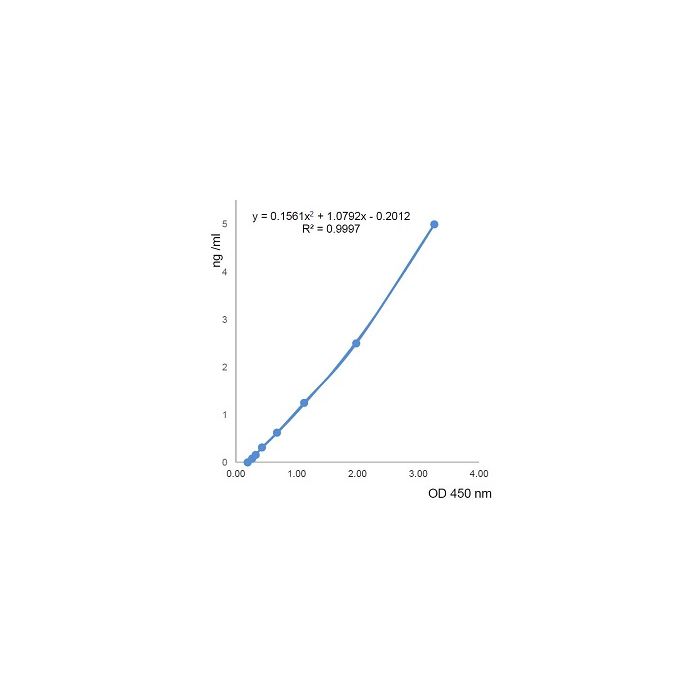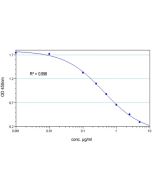Cookie Policy: This site uses cookies to improve your experience. You can find out more about our use of cookies in our Privacy Policy. By continuing to browse this site you agree to our use of cookies.
AdipoGen Life Sciences
FNDC4 (human) ELISA Kit

| Product Details | |
|---|---|
| Synonyms | Fibronectin Type III Domain-containing Protein 4; Fibronectin Type III Repeat-containing Protein 1; Fc Soluble FNDC4; FcsFNDC4 |
| Product Type | Kit |
| Properties | |
| Application Set | Quantitative ELISA |
| Specificity |
Detects human FNDC4 in serum, plasma and cell culture supernatant. It cross-reacts with mouse, rat, monkey and dog FNDC4. It does not cross-react with human, mouse or rat FNDC5 / Irisin. |
| Crossreactivity |
Dog Human Monkey Mouse Rat |
| Quantity |
1 x 96 wells |
| Sensitivity | 40pg/ml |
| Range | 0.078 to 5ng/ml |
| Sample Type |
Cell Culture Supernatant Plasma Serum |
| Assay Type | Sandwich |
| Detection Type | Colorimetric |
| Other Product Data |
UniProt link Q9H6D8: FDNC4 (human) |
| Accession Number | Q9H6D8 |
| Shipping and Handling | |
| Shipping | BLUE ICE |
| Short Term Storage | +4°C |
| Long Term Storage | +4°C |
| Handling Advice |
After standard reconstitution, prepare aliquots and store at -20°C. Avoid freeze/thaw cycles. Plate and reagents should reach room temperature before use. |
| Use/Stability | 12 months after the day of manufacturing. See expiry date on ELISA Kit box. |
| Documents | |
| Manual |
 Download PDF Download PDF |
| MSDS |
 Download PDF Download PDF |
| Product Specification Sheet | |
| Datasheet |
 Download PDF Download PDF |
Irisin is a recently described exercise-induced hormone secreted by skeletal muscle in mice and humans. Irisin activates beige fat cells (beige cells have a gene expression pattern distinct from either white or brown fat and are preferentially sensitive to the polypeptide hormone irisin). Irisin is cleaved from the type I membrane protein FNDC5 and improves systemic metabolism by increasing energy expenditure. FNDC4 is an ortholog of FNDC5 with 50% identity and 86% similarity compared to Irisin. FNDC4 as well as FNDC5 are extremely well conserved between species. The human FNDC4 gene is highly enriched in liver, brain tissue and adipocytes. FNDC4 is a factor with direct therapeutic potential in inflammatory bowel disease and possibly other inflammatory diseases.
Recently, a new role of FNDC4 as a hepatokine has been published. Liver primarily controls the circulating levels of FNDC4 showing tight correlation with insulin sensitivity. In addition, a new orphan adhesion G protein-coupled receptor 116 (GPR116) has been identified as a receptor of FNDC4 in white adipose tissue (WAT), thereby establishing an endocrine FNDC4-GPR116 axis in the control of systemic glucose homeostasis. Moreover, the FNDC4-GPR116 axis is impaired in diabetic patients and therapeutic injections of recombinant Fc-FNDC4 into pre-diabetic mice corrected pre-diabetic hyperglycemia.
FNDC4 is a factor with direct therapeutic potential in inflammatory bowel disease and possibly other inflammatory diseases and is a potential biomarker for different inflammatory, metabolic diseases as well as some cancers (e.g. Glioblastoma).







